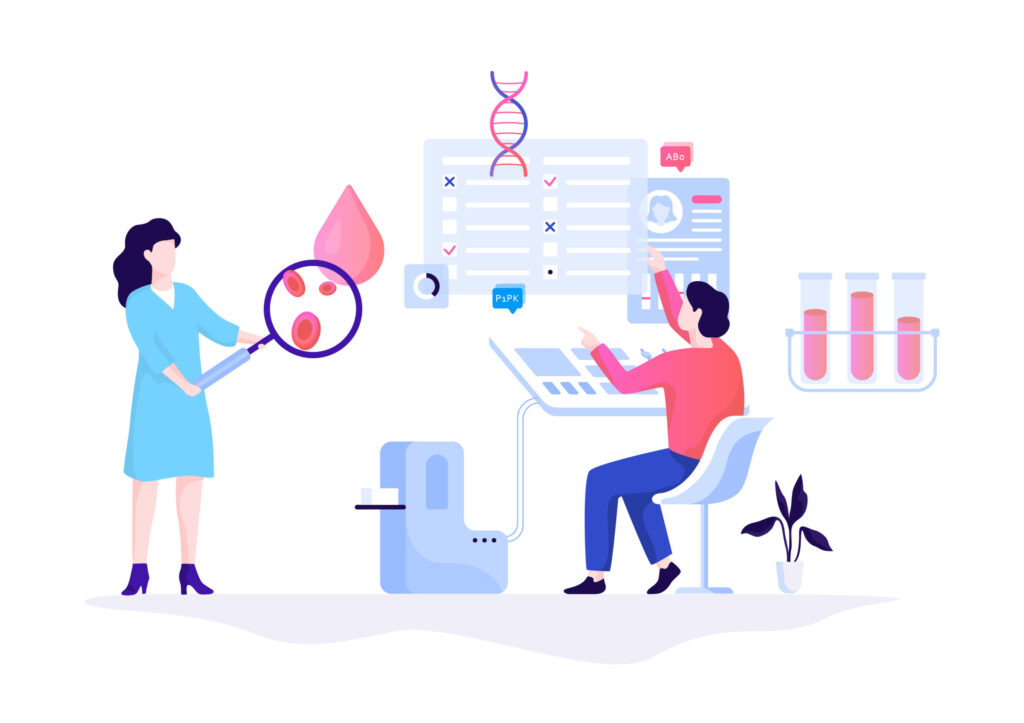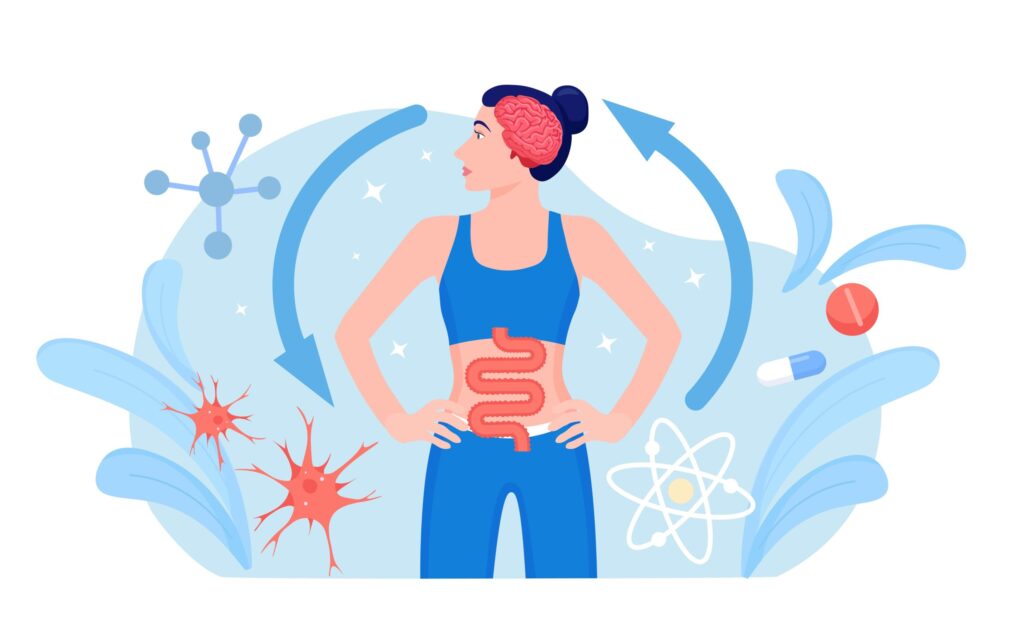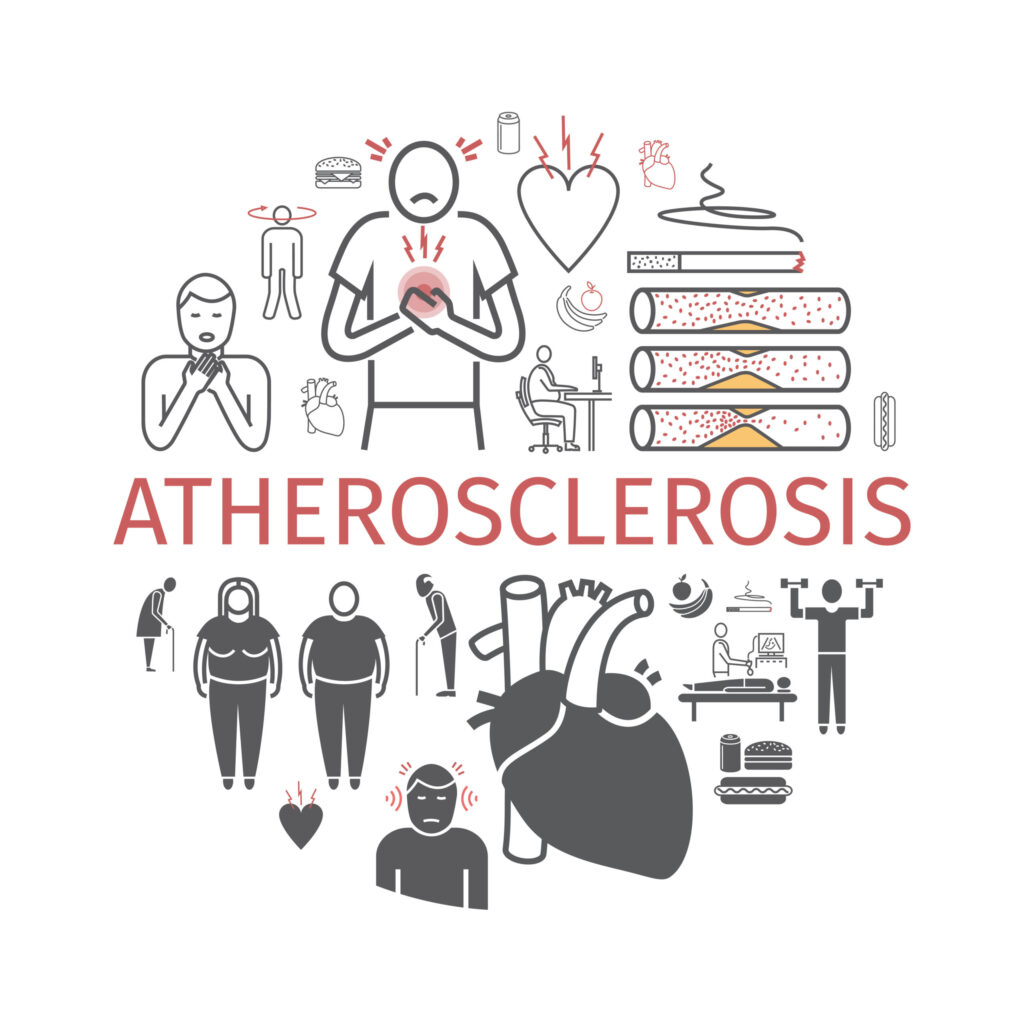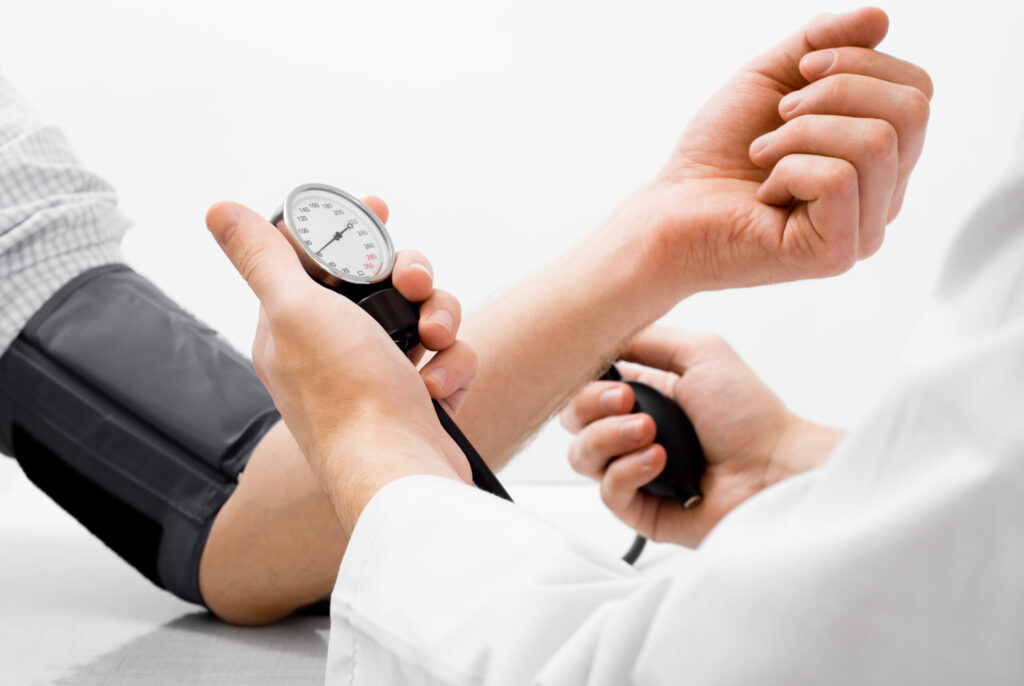Understanding the Alcohol Effects on Mental Health

Tips and Tricks on How to Drink Safely to Minimize Alcohol Effect Most adults have a personal relationship with alcohol, whether they identify as sober, social drinkers, or occasional drinkers. Alcohol use is embedded in our culture, often seen as a way to ease social interactions, reduce stress, and enhance celebrations. However, understanding the pharmacology of alcohol effects on the body is crucial for making informed decisions about its use. The Effects of Alcohol Use: Neurodegeneration You might be surprised to learn that even moderate alcohol consumption can contribute to neurodegeneration. This process, marked by the loss of neurons in the brain, affects cognitive function and is commonly associated with diseases like Parkinson’s and Alzheimer’s. However, current research shows that measurable neurodegeneration can also occur due to alcohol use, challenging the previous belief that only heavy drinkers face such health consequences. Recent studies have shown that even moderate alcohol consumption contributes to neurodegeneration, which is the loss of neurons in the brain, impacting cognitive function. A study with 36,678 participants revealed that alcohol consumption, even at moderate levels, is associated with a loss of brain matter. This includes those who drink one alcoholic beverage per day, highlighting that the risk of neurodegeneration increases with alcohol intake. Impact on Neurogenesis Neurogenesis, the growth of new neurons, is also affected by alcohol. When blood alcohol levels reach 0.08%, neurogenesis decreases, even if motor coordination impairment isn’t noticeable. This indicates that while we may not feel impaired, our brain is still suffering consequences that aren’t immediately detectable. How Alcohol Behaves in the Body Unlike many psychoactive substances that bind to specific brain receptors, alcohol follows a different path. It penetrates every cell membrane in the body, affecting all organ systems. Once ingested, alcohol is converted to ethanol in the stomach, penetrates the intestinal lining, and enters the bloodstream through capillaries. Ethanol then travels swiftly to the liver but can penetrate every cell membrane in the body due to its small molecular size, affecting all organ systems. Metabolism and Toxicity of Alcohol: In the liver, ethanol is metabolized into a toxic compound called acetaldehyde. Although acetaldehyde has a short half-life, it causes significant DNA damage while present in the body, leading to the sickness often associated with drinking. Eventually, acetaldehyde is broken down into acetate, which is then converted into carbon dioxide and water, exiting the body through these pathways. Mitigating the Effects of Alcohol Consumption Here are certain tips and tricks to mitigate the alcohol effects: 1. Eat Before Drinking Eating before consuming alcohol can reduce blood alcohol concentration levels because food slows the absorption rate of alcohol. This can soften the “peak” of an alcohol experience and reduce the likelihood of feeling ill. 2. Drink Less The safest way to use alcohol is to drink less. While this may seem impractical, it is the most effective way to minimize the risks associated with alcohol consumption. 3. Supplementation Supplements like milk thistle can help regenerate liver cells necessary for metabolizing alcohol. IV Lounge Greens-Fruits drink blends, packed with milk thistle, vitamins, and minerals, can be beneficial for hangover recovery. B-vitamins and folate are also effective for recovery before and after drinking. 4. Hydrate IV therapy is an excellent way to rehydrate after drinking. It is fast, complete, and packed with nutrients and electrolytes, offering a more effective solution than regular water or sports drinks. 5. Self-Regulation and Mental Health Practicing self-regulation can significantly impact mental health and how one handles alcohol use. Self-regulation involves pausing between a feeling and an action, allowing time to think things through and make a plan. Developing and practicing self-regulation skills can lead to better decisions about alcohol consumption, ultimately benefiting mental health. 6. Pre-game Cocktail IV Pre-Game Cocktail is loaded with Vitamin C, B Complex, Glutathione, and other essential nutrients. Pre-Game Cocktail is crafted to lessen the impact of alcohol consumption. This blend of micronutrients and antioxidants effectively reduces the symptoms of hangovers. Whether you’re aiming to alleviate nausea, combat dehydration, or gear up for a big night out, this IV cocktail is your go-to solution. Stay Informed and Make Healthier Choices Making informed decisions about alcohol use is crucial for maintaining good mental health. By understanding the alcohol effects on the brain and body, and employing strategies like eating before drinking, reducing intake, supplementing with vitamins, and staying hydrated, individuals can mitigate some of the risks associated with alcohol consumption. Begin your evening with nutrient-rich fluids along with a boost of Pre-game Cocktail. Stay energized and get ready for whatever the night brings. Avoid waking up with a dehydration headache—try Pre-Game Cocktail at IV Lounge today!
9 IV Lounge Blood Panels – Why You Need Them & Where to Begin

Blood panels are proactive, precise, and highly informative. 9 Most Recommended IV Lounge Blood Panels As affordable Blood Panels are IV Lounge’s newest wellness service , we wanted to discuss why these panels were selected and which ones are most strongly recommended by our medical professionals! If you have ever had blood work completed in a hospital, you know that having your blood drawn can be a worrying process. Typically in an emergency setting, we expect disheartening results…but what if there were ways to proactively assess our health before we experience the symptoms of a serious health concern? Having your labs completed annually is an excellent and effective method of proactive health care. Oftentimes, our bodies detect when something is wrong far before we perceive a health issue via physical symptoms. Taking steps in advance to ensure we get enough vitamins and minerals, our cholesterol levels are normal, our hormone levels are healthy, and our major organs are functioning well, is a key to longevity and health optimization. Blood tests may assess many things, including the following: medical treatment progress and side effects, vitamin or nutrient deficiencies, risk or likelihood of health hazards, the progression of illness, and the presence of pathogens. Our top 9 Blood Panels were developed with our clients specific needs in mind. These panels include IV Lounge Comprehensive Thyroid Panel, IV Lounge Wellness Panel, IV Lounge Heavy Metals Panel, IV Lounge Ultimate Panel, IV Lounge Women’s Hormone Panel, IV Lounge Men’s Hormone Panel, IV Lounge Blood Type Panel, IV Lounge Diabetes Panel, and IV Lounge STD Panel. Let’s review IV Lounge & Wellness Center’s Blood Panels and why we selected them. 1. IV Lounge Comprehensive Thyroid Panel Tests Include: TSH, T4 Total, T3 Total, T3 Uptake, Free T4, Free T3, and TPO Your Thyroid health may be more important than you think. Because the Thyroid is responsible for releasing hormones into the bloodstream that are essential to metabolic function and speed, maintaining the health of this organ is critical. Metabolic function within our cells aids in the health of our heart and digestive system. The IV Lounge Comprehensive Thyroid Panel uses a number of tests to thoroughly assess the function of the Thyroid. The TSH test specifically helps identify an overactive or underactive thyroid state. This panel is very useful in diagnosing hyperthyroidism or hypothyroidism, a condition which causes the thyroid to over or under produce hormones, causing symptoms such as a fast heart rate, fatigue weight loss or gain, trembling and/or sweating. Why is this test so important to us? 20 million people in the U.S are estimated to experience Thyroid issues. This condition can be debilitating if undiagnosed, yet many people who experience Thyroid issues are actually undiagnosed. Blood testing can be widely informative to your body’s needs. 2. IV Lounge Wellness Panel Tests Include: Vitamin D total, Basic Food Allergy Panel, CBC, CMP, CRP Latex, and Insulin The IV Lounge Wellness Panel is recommended to assess how well your body responds to your current lifestyle. In this panel, we complete a CBC test (complete blood count) and assess your levels of hemoglobin, hematocrit, red blood cells, white blood cells , and platelets. This test is commonly used to check for anemia, infection, and other common illnesses involving the blood. Alongside our CBC test, we offer a more broad screening test (CMP) used to evaluate organ function, like the liver and kidneys, and electrolyte balance. Because your liver is so important, we will also test your levels of C-reactive proteins (CRP) which are one of the proteins produced from liver cells in response to tissue damage, infection, and inflammation. Dietary choices may impact your quality of digestion and life in general, but without food allergy testing the cause of your disturbance could go undetected. IV Lounge food allergy test measures your immune response to common foods which may cause allergic reactions or digestive irritations. Alongside digestive sensitivity, your dietary habits may also have a negative impact on your body’s ability to produce a healthy amount of insulin, so we included an insulin test in this panel. Last but not least, this test will measure your levels of Vitamin D. Vitamin D is essential for healthy bones and teeth. It also helps keep your muscles, nerves, and immune system working efficiently! This panel will certainly help us understand where your lifestyle is working and optimal, and where you may need guidance. 3. IV Lounge Heavy Metals Panel Tests Include: Mercury, Lead, and Arsenic The IV Lounge heavy Metal Panel assesses the levels of toxic metals in the body, such as: lead, arsenic, and mercury which are some of the most commonly found heavy metals in humans. Surprisingly, heavy metals can be found throughout our environment and within our diet. They can be absorbed through our skin, inhaled, or digested. These heavy metals are safe in very small quantities, our bodies are even used to them! Too much of these metals, although, are unsafe. These tests are essential for individuals with medium to high amounts of seafood within their diet or who have had exposure to toxic environments. 4. IV Lounge Ultimate Panel Tests Include: Vitamin D Total, CEA, CBC, CMP, Cortisol, DHEA-S, Estradiol, FTT, FSH, Acute Hepatitis Panel, IGF-1, Insulin, Iron Panel, Lipid Panel, Procalcitonin, Progesterone Free & Total PSA, Rheumatoid Factor, Thyroid Profile, and Vitamin D 1,25 Calcitriol The IV Lounge Ultimate Panel includes tests from the wellness panel like Vitamin D, CBC, CMP, and Insulin testing as well as the Thyroid panel; This panel also includes essential hormonal testing like levels of DHEA-S (which serves as a building block to testosterone) and Progesterone (which offsets the effect of estrogen in men and women, preventing chronic illness associated with high estrogen). By testing for these things in combination with iron, hepatitis, lipid, cortisol, and rheumatoid factor level testing, we are confident that this panel will “single-out” the most common health concerns among Americans…. this is what makes it the IV Lounge Ultimate
Exploring the Gut-Brain Axis: Mental & Digestive Health

How Does Gut Health Impact Your Mood and Mental Health? The connection between mental health and digestive health is becoming increasingly recognized and studied. The intricate relationship between these two systems, often referred to as the Gut-Brain Axis, underscores how our gut health impacts not only physical well-being but also mental and emotional states. The intricate link between our mental health and digestive system has garnered significant attention from researchers and health enthusiasts alike. Gut-Brain Axis highlights how the state of our gut directly impacts our mood, cognitive function, and overall mental well-being. This blog post explores the intricate relationship between mental health and digestive health, emphasizing the critical role of the Gut-Brain Axis in maintaining overall well-being. It discusses how gut microbiota, dietary choices, lifestyle factors, and stress management influence mental health outcomes. What is Digestive Health? Digestive health refers to the overall well-being of the digestive system, which includes all organs and processes involved in the ingestion, digestion, absorption of nutrients, and elimination of waste in the body. It encompasses both the physical and chemical processes that occur from the moment food enters the mouth until it is excreted as waste. A healthy digestive system is crucial for optimal nutrient absorption, immune function, and overall well-being. It involves the proper functioning of organs such as the mouth, esophagus, stomach, small intestine, large intestine (colon), liver, gallbladder, and pancreas, as well as the complex interactions of enzymes, hormones, and bacteria that aid in digestion. Issues with digestive health can lead to a range of conditions, including but not limited to constipation, diarrhea, acid reflux, inflammatory bowel diseases (such as Crohn’s disease and ulcerative colitis), and gastrointestinal cancers. Maintaining digestive health involves adopting a balanced diet rich in fiber, staying hydrated, managing stress, exercising regularly, and avoiding excessive consumption of alcohol and tobacco. Regular medical check-ups and prompt attention to digestive symptoms are also essential in maintaining digestive wellness. Understanding the Gut-Brain Axis The Gut-Brain Axis is a complex network involving communication pathways between the gastrointestinal tract and the brain. This bidirectional interaction influences various aspects of our mental health, ranging from mood regulation to cognitive processing. The gut, often referred to as the “second brain,” houses millions of neurons and produces a significant amount of serotonin, a neurotransmitter crucial for mood stability and emotional balance. Serotonin and Its Role in Mental Health Serotonin, often called the “happy chemical,” is pivotal in regulating our central nervous system. It affects not only our mood but also our sleep patterns, appetite, and cognitive functions like learning and memory. Imbalances in serotonin levels are linked to conditions such as depression and anxiety, underscoring the importance of a healthy gut in maintaining mental well-being. The Influence of Gut Microbiota Our gut is home to trillions of bacteria collectively known as the gut microbiota. These bacteria play a crucial role in digestion, nutrient absorption, and maintaining the integrity of the intestinal barrier. Specific types of gut bacteria, such as Enterochromaffin cells, are responsible for producing serotonin, highlighting their role in influencing our mental health. Impact of Gut Health on Mood and Emotions Serotonin, often dubbed the “happy chemical,” is primarily produced in the gut. This neurotransmitter regulates mood, sleep, appetite, and cognition. Imbalances in serotonin levels are implicated in conditions such as depression and anxiety, highlighting the critical role of gut health in maintaining mental well-being. Impact of Modern Lifestyles on Gut Health Unfortunately, modern lifestyles characterized by stress, processed foods, antibiotics, and environmental toxins can disrupt the delicate balance of gut microbiota. This imbalance not only affects digestion but also contributes to mental health issues such as anxiety and mood disorders. Promoting Mental Health through Digestive Care Maintaining a healthy gut is pivotal for enhancing mental health. Incorporating fiber-rich foods, probiotics, and fermented products into your diet can nurture a diverse gut microbiome and support optimal mental well-being. Additionally, managing stress levels and avoiding harmful substances can further aid in preserving gut health and fostering a positive mood. Research has linked disruptions in gut microbiota, known as dysbiosis, to various mental health disorders including depression, anxiety, and even neurodevelopmental disorders like autism. Factors such as stress, dietary patterns, and antibiotic use can significantly impact the composition and diversity of gut microbiota, thereby influencing mental health outcomes. Strategies for Enhancing Gut and Mental Health Dietary Modifications: Incorporate fiber-rich foods, fermented products like yogurt and kimchi, and prebiotic-rich foods such as garlic and onions to nourish gut microbiota. Stress Management: Practice mindfulness, yoga, or deep breathing exercises to reduce stress levels, which can positively impact gut health. Regular Physical Activity: Engage in regular exercise to support overall digestive function and enhance mood through the release of endorphins. Limiting Antibiotic Use: Use antibiotics judiciously and supplement with probiotics to mitigate their impact on gut microbiota. Attain optimal gut and mental Health with the Master Cocktail The connection between mental health and digestive health is profound and multifaceted. By nurturing a healthy gut through dietary adjustments, stress reduction, and lifestyle modifications, individuals can significantly enhance both their digestive function and mental well-being. With the Master Cocktail at IV Lounge, a unique infusion is designed to elevate your health. Crafted with Vitamin C, Vitamin B Complex, Vitamin B12, Glutathione, Calcium, Magnesium, & Potassium Bicarbonate, this exclusive blend enhances immunity, supports speedy recovery, boosts energy levels, and promotes metabolic health. Whether you seek to fortify your immune system, address nutrient deficiencies, or improve nutrient absorption, the Master Cocktail is tailored to meet your wellness needs. Unlock the potential of optimal health today with the Master Cocktail at IV Lounge!
IV Lounge Products and Pricing

Here at the IV Lounge, we offer a variety of IV treatments that can be catered to your needs. Whether you’re looking for a quick pick-me-up or something more long-term, we have an option for you. We have an extensive list of products including IV Cocktails, IV Shots, and more. In this article, we are going to go in-depth about our product offerings and pricing. IV Cocktails IV Cocktails are our most popular product and can be tailored to your specific needs. We offer a variety of different options, all of which are designed to give you the energy and nutrients you need. Below we will go over the different Cocktails, what they’re made for (ingredients), and finally the price. All In One Master Cocktail – $175 The All In One Master Cocktail IV is a powerful immune booster and disease preventer. It helps to keep your skin looking young and healthy by preventing hyperpigmentation. It also provides an energy boost and helps to support immune function. This IV cocktail is an all-in-one solution for keeping your body healthy and looking its best. The ingredients are: Vitamin C B Complex B12 Gluthione Calcium Magnesium Potassium Bicarbonate Immune Support Cocktail – $125 Introducing the Immune Support IV Cocktail! This revolutionary new product is designed to help your body recover from illness and protect against infection. The powerful combination of immune-supporting ingredients and anti-inflammatory agents makes the Immune Support IV Cocktail a must-have for anyone looking to improve their health! Here are just some of the benefits you can expect when you take the Immune Support IV Cocktail: Boosted immune system – the immune-supporting ingredients in the cocktail will help keep your body healthy and fight off infection. Improved recovery from illness – the cocktail’s anti-inflammatory properties will help reduce swelling and pain, making it easier for your body to recover from an illness. Protection against future infections – by helping to boost your immune system, the cocktail will also help protect you against future infections. If you’re looking for a way to improve your health and well-being, look no further than the Immune Support IV Cocktail! Ingredients Vitamin C Zinc Calcium Magnesium Potassium Bicarbonate Runners Recovery Cocktail- $200 Looking for a product to help you get through your tough workouts? Look no further than Runner’s Cocktail IV! Not only does Runner’s Cocktail IV help fight fatigue, but it also boosts energy and improves metabolism. Additionally, this product is perfect for helping with muscle recovery after a strenuous workout. Plus, the mega-boost of antioxidants provides an extra level of protection against free radicals. Ingredients: Calcium Magnesium Potassium Bicarbonate Vitamin C B Complex B12 Toradol Strength and Recovery Cocktail – $125 Introducing the Strength and Recovery IV Cocktail! This powerful little concoction is perfect for when you need quick relief from headaches or nausea, fast rehydration, and a good flush of toxins from your system. Our proprietary blend of ingredients is carefully selected to give you the maximum benefit in a short amount of time. Just hook up to one of our IVs and let the Strength and Recovery IV Cocktail work its magic! Ingredients Glutamine Ornithine Arginine Lysine Citrulline Carnitine B Complex B12 Calcium Magnesium & Potassium bicarbonate Jet Lag Cocktail – $175 Introducing the Jet Lag IV Cocktail! This powerful concoction is designed to help your body recover from fatigue, boost energy levels, and improve mental focus. It’s perfect for those who need an extra edge to get through their day. The cocktail is packed with essential vitamins and nutrients that will replenish your body and help you feel your best. Whether you’re struggling with jet lag or just need a little pick-me-up, the Jet Lag IV Cocktail is the perfect solution. Ingredients Vitamin C Magnesium chloride Zinc Manganese Copper Selenium Calcium Magnesium Potassium Bicarbonate Beauty Cocktail – $150 Looking for a beauty boost? Look no further than our Beauty IV Cocktail! This powerful elixir is designed to support healthy skin, hair and nails while also delivering a collagen boost and a dose of antioxidants. Just one infusion of our Beauty IV Cocktail can help brighten your skin, improve your metabolism and give you an energy boost that will have you looking and feeling your best. Ingredients Vitamin C Glutathione Biotin Calcium Magnesium Potassaium Bicarbonate Pre-Game Cocktail – $150 Looking to get a head start on your hangover and get your day started on the right foot? Look no further than Pre-Game Cocktail IV! This detoxifying and energizing blend of vitamins and antioxidants is exactly what you need to feel refreshed and invigorated before you head out on the town. Ingredients Vitamin C B Complex Glutathione Calcium Magnesium Potassium Bicarbonate After Party Cocktail – $175 After a long night of partying, the last thing you want is to feel like death the next morning. That’s where After Party Cocktail IV comes in! This IV drip helps you recover from your hangover quickly and efficiently, so you can get back to your normal self in no time. With a blend of essential vitamins and minerals, After Party Cocktail IV helps rehydrate your body and replenish your system. Ingredients Vitamin C B Complex Calcium Glucanote Magnesium Chloride B12 Myers Cocktail – $175 The Myers Cocktail IV is the perfect solution for anyone looking for an energy or immune boost. This powerful cocktail of vitamins and minerals is designed to hydrate your body in minutes, leaving you feeling refreshed and revitalized. The detoxing properties of the Myers Cocktail IV help cleanse your system and leave you feeling healthier than ever before. Ingredients Vitamin C (2gm) B Complex Calcium Gluconate Magnesium Chloride B12 Power Up Cocktail – 500 MG – $250 750 MG – $349 Our most expensive cocktail is the Power Up Cocktail. This cocktail includes NAD+ which is Nicotinamide adenine dinucleotide. NAD+ is a coenzyme found in all living cells. It plays a vital role in the production of energy and is essential
B12 Shot vs. B12 Pills: How Many Pills Equal a Shot?

Vitamin B12 is essential for various bodily functions, including red blood cell production, DNA synthesis, and maintaining a healthy nervous system. It also plays a significant role in converting fats and proteins into energy. While many are familiar with the benefits of B12 shots, people opt for B12 shot for various reasons, such as managing specific health conditions like pernicious anemia or gut issues that hinder B12 absorption. Others choose B12 shot for overall wellness, recognizing that oral supplements may not be as effective. This blog explores the differences between B12 shot and pills, providing insights into why one might be more beneficial than the other. Understanding B12 Shot vs. B12 Pills Let us understand the difference between a B12 shot and B12 pills in detail: Absorption Rates: A critical difference between B12 shot and pills is the absorption rate. A typical B12 shot contains 1000mcg of B12, which is absorbed at nearly 100% efficiency since it is delivered directly into the bloodstream. In contrast, B12 pills, even those labeled as 1000mcg, have an absorption rate of about 30%. This disparity means you get significantly more B12 from a shot than from a pill. Bioavailability: Oral B12 supplements require intrinsic factor, a protein in the stomach, for absorption. As people age or encounter certain health issues, their intrinsic factor production can decrease, leading to lower B12 absorption from pills. This issue is bypassed with B12 shot, which does not rely on the digestive system, ensuring that the vitamin is delivered directly and efficiently to where it’s needed in the body. Frequency and Dosage: B12 pills are typically taken daily, whereas B12 shot can be administered less frequently. Initially, shots might be given more frequently to establish adequate levels, but over time, maintenance doses can be spaced out to once every few months. This less frequent administration makes B12 shot a convenient option for those looking to maintain their B12 levels without the daily hassle of pills. Upfront Costs: At first glance, B12 pills appear more cost-effective, with prices ranging from $10 to $50 for a month’s supply. In contrast, B12 shot can cost between $50 to $100 per shot, depending on insurance coverage and the provider. However, the initial cost comparison doesn’t account for the efficiency and effectiveness of each method. Long-Term Value: When considering long-term value, B12 shot often provide better results for the investment. Pills may be less expensive upfront, but their lower absorption rate means you might need to take more of them to achieve the same benefits as a shot. Additionally, the convenience of fewer administrations with shots can translate to time savings and fewer health issues related to B12 deficiency. Immediate Impact: B12 shot provide an immediate boost in B12 levels, which can quickly alleviate symptoms of deficiency such as fatigue, cognitive decline, and mood disturbances. This rapid effectiveness is particularly beneficial for individuals with severe deficiencies or those who require a quick recovery from intense physical activity or illness. Long-Term Benefits: Consistent use of B12 shot can lead to sustained energy levels, improved mental clarity, and overall better health. For those with chronic conditions or absorption issues, shots ensure that they maintain adequate B12 levels, which can be crucial for long-term wellness. Key Functions of Vitamin B12 Vitamin B12 is indispensable for several critical bodily processes: Red Blood Cell Formation: Helps in the production of healthy red blood cells, which transport oxygen throughout the body. DNA Synthesis: Essential for the creation and repair of DNA. Nervous System Health: Maintains the health of nerve cells and supports brain function. Energy Production: Converts fats and proteins into energy, enhancing overall vitality. Factors Influencing B12 Absorption There are various reasons that affect the absorption of B12, as mentioned below: Health Conditions: Various health conditions can affect B12 absorption from oral supplements. These include gastrointestinal disorders, such as Crohn’s disease or celiac disease, and surgeries like gastric bypass that alter the digestive tract. People with these conditions often benefit more from B12 shot. Lifestyle Factors: Certain lifestyle choices, such as high alcohol consumption, can deplete B12 levels. The liver, which stores B12, can be compromised by excessive alcohol intake, leading to higher B12 requirements. B12 shot bypass the liver’s storage function, delivering the vitamin directly into the bloodstream. Age and Genetic Factors: As people age, their bodies naturally produce less intrinsic factor, reducing the ability to absorb B12 from food and supplements. Additionally, some individuals have genetic variations that affect B12 metabolism. B12 shot can help overcome these barriers by providing a direct and efficient method of supplementation. Determining Your B12 Needs To determine the Vitamin B12 level in the body and to include B12 shot, the following steps are involved: Initial Assessment Before starting any B12 supplementation, it’s essential to determine your baseline B12 levels through a blood test. This test will help establish whether you have a deficiency and how severe it is. Based on this assessment, a healthcare provider can recommend the appropriate form and dosage of B12 supplementation. Establishing a Regimen For those starting on B12 shot, the regimen typically begins with a series of loading doses to quickly raise B12 levels. Once adequate levels are achieved, the frequency of shots can be reduced to a maintenance schedule, which might range from monthly to quarterly, depending on individual needs. Monitoring and Adjustments Regular monitoring of B12 levels is crucial to ensure that your supplementation regimen is effective. Adjustments may be necessary based on changes in health status, diet, or lifestyle. Working with a healthcare provider ensures that you receive the appropriate amount of B12 to maintain optimal health. Which is the Right B12 Option? When deciding the best option for B12 supplement for your fitness goals, given below are the considerations that must be given due thought: Personal Preferences Some people prefer the convenience of taking a daily pill, while others find the less frequent administration of shots more appealing. Personal comfort with needles and the ability to manage a daily supplement routine
Improve Sleep Quality to Circadian Rhythm

How to Improve the Quality of Your Sleep? Sleep plays a crucial role in our daily lives, yet it is often treated as a luxury in modern society. For students and educators, sleep deprivation is particularly problematic due to academic stress, unbalanced schedules, and constant exposure to technology. This article will explore how to improve sleep quality and maintain a healthy sleep cycle, especially during the back-to-school season. Understanding Circadian Rhythms Circadian rhythms are the body’s internal 24-hour sleep-wake cycles that respond to light, dark, and other external stimuli. These rhythms are regulated by the master clock located in the hypothalamus and influence almost every cell, tissue, and organ in our body. The retina in the eye detects light and sends information to the brain, helping to regulate these cycles. Artificial stimuli, like the light from cell phones or the sound of a television, can disrupt our sleep-wake cycle. This disruption occurs because our retinas and ears continue to detect these stimuli, keeping the brain alert and hindering the production of melatonin, a hormone that promotes sleep. The Impact of Modern Life on Sleep Students and educators often have to extend their work into the late night, using technology that further disrupts their circadian rhythms. Adolescents naturally have delayed circadian rhythms, making them more prone to being night owls. This combination of delayed rhythms and technological distractions makes it difficult for students and educators to get sufficient sleep within a rigid academic schedule. Studies show that a significant percentage of students do not get enough sleep. For high school students, 87% do not achieve the recommended 8 to 10 hours of sleep per night. Among college students, 70% to 94% get less than the recommended 8 hours, with 50% experiencing daytime sleepiness. This lack of sleep negatively impacts academic performance and overall health. Consequences of Sleep Deprivation Sleep deprivation can have severe consequences, including cognitive impairments similar to those caused by alcohol consumption. Long-term sleep deprivation can lead to irritability, decreased attention span, insulin imbalances, hormonal changes, and decreased immunity. These effects can significantly impact a student’s success in school and overall well-being. Four Methods to Improve Sleep Hygiene Exercise Regularly: Exercise during the day improves sleep quality and helps you fall asleep faster. Even a brisk walk can make a difference. For busy students and educators, combining exercise with educational activities, like listening to lectures or podcasts, can save time. Limit Caffeine Intake: While caffeine is a staple for many in academics, consuming it up to 6 hours before bedtime can reduce sleep duration. Enjoy coffee in the morning and avoid caffeine in the late afternoon and evening. Establish a Bedtime Routine: Create a relaxing bedtime routine by stepping away from technology an hour before bed. Activities like showering, drinking herbal tea, or applying a face mask can help you unwind and prepare for sleep. Consider Supplementation: Supplements can help improve sleep quality. IV Lounge & Wellness Center’s Sleep Sweet supplement is designed to help you relax before bedtime, making the transition from work or school to sleep smoother. The Importance of Healthy Sleep Healthy sleep is essential for maintaining physical health, mental clarity, and overall well-being. Adequate sleep supports the body’s ability to repair and rejuvenate itself, promoting optimal function of various systems, including the immune, cardiovascular, and endocrine systems. For students and educators, healthy sleep is crucial as it directly impacts cognitive performance, concentration, and memory retention, leading to better academic and professional outcomes. We all need healthy sleep for: Cognitive Function: Adequate sleep enhances learning, memory consolidation, and problem-solving skills. Emotional Well-being: Quality sleep helps regulate emotions, reducing the risk of mood disorders like anxiety and depression. Physical Health: Proper sleep supports immune function, reduces the risk of chronic illnesses, and aids in muscle recovery. Stress Reduction: Sleep lowers stress hormone levels, helping the body manage stress more effectively. Productivity: Well-rested individuals are more focused, efficient, and productive in their daily tasks. Improve Sleep Quality with Relax Shot Enhancing your sleep habits can significantly improve your daily life and overall well-being. For those seeking additional support, consider trying the Relax Shot from IV Lounge & Wellness Center. This specially formulated mineral mixture aims to alleviate discomfort from aches, pains, headaches, and stress while promoting healthier sleep habits. Key ingredients like magnesium help bolster the body’s resilience to stress, providing pain relief, stress reduction, improved sleep, and increased energy. To learn more about the Relax Shot and other wellness products, visit your nearest IV Lounge & Wellness Center office.
IV Therapy: Essential Dos and Don’ts for Optimal Wellness

IV Therapy: The Do’s and Don’ts IV therapy, or intravenous therapy, is a medical technique that delivers fluids, vitamins, minerals, and other essential nutrients directly into your bloodstream. This method ensures 100% absorption of these nutrients, making it an efficient way to address various health issues and improve overall wellness. Although the concept of IV therapy dates back to the 1600s, significant advancements have only occurred in the last few decades, transforming it into a popular treatment for a range of conditions. The Evolution of IV Therapy The journey of IV therapy began with early attempts to inject fluids into veins, which were largely unsuccessful due to limited scientific knowledge and inadequate medical equipment. It wasn’t until the 1940s, during World War II, that significant progress was made. Nurses and doctors began experimenting with plastic tubes, leading to the development of the modern IV catheter in the 1950s by Dr. David Massa. This innovation made IV therapy safer and more comfortable for patients, paving the way for its widespread use today. The IV Therapy Process Understanding the IV treatment process can alleviate any apprehension you might have. Start by scheduling an appointment and attending a consultation where your health will be assessed, and the appropriate treatment will be recommended. On the day of your appointment, wear comfortable clothing and prepare to relax. A nurse will insert the IV, and you can sit back while the nutrients are delivered directly into your bloodstream. Some people feel the benefits almost immediately, experiencing enhanced hydration and an influx of vitamins and minerals. Benefits of IV Therapy IV treatments have become a versatile treatment option, offering solutions for a variety of health concerns such as migraines, fatigue, dehydration, and immune system boosts. It is also used for weight loss, athletic recovery, anti-aging, and hangover relief. The key to maximizing the benefits of IV hydration lies in understanding and following the essential dos and don’ts of this treatment. Dos of IV Therapy Choose the Right Facility Selecting a reputable facility is crucial for a positive IV therapy experience. Look for clinics with trained medical professionals, such as nurses or physician assistants, who specialize in IV administration. Research and read reviews to ensure the facility adheres to high standards of care. Change Injection Sites Regularly changing the injection site is important to allow the skin to heal and prevent complications such as infection or scarring. Rotate between different areas to ensure proper healing and minimize discomfort. Get a Consultation A thorough consultation with a healthcare provider is essential before starting IV therapy. This helps in assessing your health, understanding your needs, and tailoring the treatment to provide the right nutrients for your body. Each individual’s requirements are unique, and a professional consultation ensures a personalized approach. Dress Comfortably Wear loose, comfortable clothing to your appointment. Since you’ll be seated for a while, it’s best to dress in a way that allows you to relax. If you tend to get cold, consider bringing a blanket to keep warm during the session. Bring Distractions IV therapy sessions can last anywhere from 30 minutes to an hour. Bring along a book, music, or any other form of entertainment to keep yourself occupied and make the experience more pleasant. Don’ts of IV Therapy Use IV Therapy for Certain Conditions Without Consultation It’s vital to consult a healthcare provider to determine if IV therapy is suitable for you, especially if you have allergies or specific health conditions. They can help identify any potential risks and ensure the therapy is safe for you. Assume It’s Bad for You Despite its clinical appearance, IV therapy is a safe and effective way to receive essential nutrients. Many people associate it with hospital settings, but it is a beneficial treatment that supports overall health and wellness. Use It as the Only Fix IV therapy should complement a healthy lifestyle rather than replace it. It’s not a cure-all solution but rather an enhancement to your existing health regimen. Maintaining a balanced diet and regular exercise is crucial for the best results. Be Afraid to Try Don’t let fear or misconceptions prevent you from trying IV therapy. Many people find it relaxing and highly beneficial. Healthcare professionals are there to guide you through the process and ensure your comfort. Experience the Benefits of IV Therapy IV therapy offers a range of treatments tailored to your specific needs. At the IV Lounge, we provide various IV cocktails, including options for hydration, immune support, anti-aging, and athletic recovery. Embrace the benefits of IV therapy and enhance your wellness journey. Visit our website or call us to schedule your appointment today and discover the transformative effects of IV therapy.
IV Therapy Pros and Cons, is IV Therapy Good for You?

IV Therapy has been around for some time now but it’s just getting the popularity it deserves. This is mainly used in a healthcare setting to deliver nutrients or medications to a patient. As it has become more popular, you will start to see that everyone is starting to take part in the wonders of IV therapy like celebrities and even just your peers. It’s a great way to be able to quickly feel more hydrated but how does IV therapy REALLY work? To be able to fully understand how IV Therapy works, you should start from the beginning. The acronym “IV” that you’re always seeing stands for Intravenous. The section, intra means within or inside. Venous, relates to the vein. If you put both of those together that’s how you get the word intravenous therapy. From there on it’s pretty easy to figure out what this treatment is. From there it’s time to understand how these Iv treatments work. It involves a tube called a catheter and solution that contains the specific vitamins and minerals that you chose. The infusion will deliver these nutrients directly into your bloodstream, cutting down on the wait time. This is becoming such a popular treatment just because when you take oral medication, it has to pass through the digestive system. Because of this, you don’t get the full amount of nutrients you could be getting. So why do you need these nutrients? According to Neuro Mend, as you age you become more nutritionally deficient. This can lead to possible cellular changes that may even damage your DNA. Using IV therapy as a way to assist your body can help slow down the effects of aging an may even help your cells repair themselves after exposure to toxic environments. If you’re someone that’s fairly new to the IV Therapy world, you’ll want to know everything you possible can about it before diving in completely. To be able to do that it’s good to be educated on the pros and cons of what Iv Therapy has to offer. IV Therapy Cons Here are a few things that some folks can consider possible cons of IV therapy. Not A Substitution Vitamin IV therapy can be a great way to target infection, dehydration, and even malnutrition but one thing that everyone should keep in mind is that this isn’t a substitute for a healthy diet. It’s important to be able to keep up with your health out of vitamin IV therapy because it’s not something that you can do everyday. It’s purpose is to ADD on any extra nutrients and benefits that your body may be lacking but if you’re missing out on a healthy lifestyle completely it won’t do much good. Not Ideal Another challenge that can come from this is the fact that it has to be administered by a qualified professional. It’s not something you can just go out to the store and buy. Because of this, not everyone is able to have access to it maybe because of their schedule or where they live. There are some IV therapy treatment centers that offer Mobile Concierge Service where they can bring the nurse or physician to you, like at the IV Lounge, but it’s not something that’s very well known at the moment. Irritation Like with any shot or injectable there is the possibility of infection. Whenever you puncture your skin, regardless of how it’s done, it’s opening the body and putting it at risk for outside pathogens. At the Iv lounge we take pride in our registered healthcare professionals. They have been trained the right way and are more than prepared to administer your IVs. Bruising There are people who have veins that are hard to find. This can happen to anyone but it just means that it may take a couple tries to get the right vein for the IV. Like any injection, regardless of how many times it’s done, there is some possibility for bruising. This is a completely normal and often a good sign because it shows that your immune system is doing its job. Luckily, any discomfort that you may feel shouldn’t last that long and then it’ll be like nothing even happened. Discomfort The more obvious con is the fact that it’s a needle going into your arm. For those that have a fear of shots may take this as a pretty serious con. The good thing is that when you’re getting n IV infusion, the needle doesn’t stay inside your arm the whole time! Once the needle punctures the skin, the healthcare professional will put the catheter in and remove the needle. IV Therapy Pros To lighten the load we decided to put the pros at the bottom, this will help ease your mind and may even help you see that IV Therapy is a great health treatment! Fast Acting We all know that with every bad there can be a good. Since those are some cons or challenges that can come from IV therapy, I figured it’d be good to bring to light some of the pros. We all know that one of the main advantages of IV therapy is the fact that it’s fast acting. If you were dehydrated you would usually drink some water but sometimes that takes hours to do what it has to do. With Vitamin IV Therapy, you will be hydrated within minutes and be able to walk out feeling like a new person. When you take oral supplements, by the time it reaches your bloodstream most of it has been absorbed by your digestive system. Because f this, you don’t get the full amount of Vitamins and minerals that you could get. With IV therapy all of the nutrients go straight to your bloodstream so that you get 100% absorption. Specialized Whenever you’re sick and you need to take some kind of medicine, it’s hard to find something that will tend specifically to what you are feeling. With
Understanding Atherosclerosis and Heart Health

Atherosclerosis: The Silent Threat to Heart Health Atherosclerosis is a condition that significantly impacts heart health, involving the buildup of fatty deposits called plaques on the inner walls of arteries. This condition can lead to serious health issues, including heart attacks and strokes. Understanding atherosclerosis is crucial for maintaining heart health and preventing cardiovascular diseases. What is Atherosclerosis? Atherosclerosis is a progressive disease where arteries become narrowed and hardened due to plaque accumulation. Plaques are made up of fat, cholesterol, calcium, and other substances found in the blood. Over time, these plaques can restrict blood flow and lead to various complications affecting heart health. How Atherosclerosis Develops The development of atherosclerosis begins with damage to the endothelium, the inner lining of the artery. This damage can be caused by factors such as high blood pressure, smoking, high cholesterol, and diabetes. Once the endothelium is damaged, bad cholesterol (LDL) enters the arterial wall. The body’s immune system responds by sending white blood cells to digest the LDL, but over time, these cells and other substances form a plaque. Risk Factors for Atherosclerosis Several risk factors contribute to the development of atherosclerosis, many of which are related to heart health. These include: High Cholesterol: High levels of LDL cholesterol can lead to plaque formation. High Blood Pressure: Hypertension can damage the arteries, making them more susceptible to plaque buildup. Smoking: Tobacco smoke damages the endothelium and promotes plaque formation. Diabetes: High blood sugar levels can damage blood vessels and contribute to atherosclerosis. Obesity: Excess body weight is associated with high cholesterol, high blood pressure, and diabetes, all of which increase the risk. Sedentary Lifestyle: Lack of physical activity contributes to obesity and other heart health issues. Unhealthy Diet: Diets high in saturated fats, trans fats, and cholesterol can increase the risk of atherosclerosis. Symptoms and Complications In the early stages, atherosclerosis often has no symptoms. As it progresses, it can lead to symptoms and complications that affect heart health, including: Angina (Chest Pain): Reduced blood flow to the heart muscle can cause chest pain or discomfort. Heart Attack: A complete blockage of a coronary artery can lead to a heart attack, characterized by intense chest pain, shortness of breath, and other symptoms. Stroke: Atherosclerosis can also affect the arteries leading to the brain, resulting in a stroke if blood flow is obstructed. Peripheral Artery Disease: Plaque buildup in the arteries of the limbs can cause pain and mobility issues. Diagnosis of Atherosclerosis Diagnosing atherosclerosis is essential for managing heart health. Common diagnostic methods include: Physical Exam: A doctor may check for weak or absent pulses, signs of aneurysm, or evidence of poor wound healing. Blood Tests: These can measure cholesterol levels, blood sugar, and markers of inflammation. Imaging Tests: Tests such as ultrasound, CT scans, and angiography can visualize the arteries and detect plaque buildup. Electrocardiogram (ECG): This test records the electrical activity of the heart and can detect irregularities caused by reduced blood flow. Treatment Options for Atherosclerosis Managing atherosclerosis is crucial for improving heart health and reducing the risk of complications. Treatment options include: Lifestyle Changes: Adopting a heart-healthy lifestyle is fundamental. This includes eating a balanced diet low in saturated fats and cholesterol, exercising regularly, quitting smoking, and maintaining a healthy weight. Medications: Various medications can help manage atherosclerosis. Statins lower cholesterol levels, antihypertensives control blood pressure, and antiplatelet drugs reduce the risk of blood clots. Surgical Procedures: In severe cases, surgical interventions may be necessary. These include angioplasty (to open narrowed arteries), stent placement (to keep arteries open), and bypass surgery (to create a new pathway for blood flow). Preventing Atherosclerosis Prevention is key to maintaining heart health and avoiding the complications of atherosclerosis. Here are some preventive measures: Healthy Diet: Focus on a diet rich in fruits, vegetables, whole grains, lean proteins, and healthy fats. Limit intake of saturated fats, trans fats, and cholesterol. Regular Exercise: Engage in at least 150 minutes of moderate-intensity exercise per week. Activities like walking, cycling, and swimming are excellent for heart health. Avoid Smoking: If you smoke, seek help to quit. Avoiding tobacco smoke reduces the risk of atherosclerosis and other heart health issues. Manage Stress: Chronic stress can negatively impact heart health. Practice stress management techniques like mindfulness, meditation, and deep breathing exercises. Regular Health Screenings: Regular check-ups with your healthcare provider can help monitor risk factors such as cholesterol levels, blood pressure, and blood sugar. The Role of InBody Scans in Monitoring Heart Health Maintaining heart health requires ongoing monitoring and assessment. One effective tool for this is the InBody scan. InBody scans provide precise evaluations of body composition, including critical metrics like body fat percentage. These insights are invaluable for accurately assessing health status and validating the effectiveness of wellness programs. With InBody’s innovative technology, individuals can make informed decisions to optimize health outcomes and achieve success. Conducting non-invasive InBody scans takes less than 60 seconds. This advanced technology accurately measures fat, muscle, and water levels, providing comprehensive full-page result sheets to monitor progress effectively. Conclusion: Prioritize Heart Health with Comprehensive Assessment Atherosclerosis is a significant concern for heart health, but with proper management and preventive measures, its impact can be minimized. Adopting a heart-healthy lifestyle, staying informed about risk factors, and utilizing tools like InBody scans can make a substantial difference. InBody scans offer a precise and comprehensive evaluation of your body composition, helping you understand your health status and track the effectiveness of your wellness programs. With accurate measurements of fat, muscle, and water levels, you can make informed decisions to optimize your health outcomes. These non-invasive scans take less than 60 seconds and provide detailed results to monitor your progress effectively. Stay proactive in managing your heart health and take advantage of innovative technologies like InBody scans. Schedule your InBody scan today and take the first step towards a healthier, more informed you. Visit our website or call us now to book your appointment and start your journey towards optimal heart health.
Understanding High Blood Pressure and Management

Nutrients That Help Control High Blood Pressure High blood pressure, also known as hypertension, is a common yet serious condition that affects millions of people worldwide. It occurs when the force of the blood against the artery walls is consistently too high, which can lead to severe health problems such as heart disease, stroke, and kidney failure. Monitoring and managing high blood pressure is crucial for maintaining overall health and preventing long-term complications. What is High Blood Pressure? Blood pressure is the measurement of the force exerted by circulating blood on the walls of blood vessels. It’s determined by two factors: the amount of blood the heart pumps and the resistance to blood flow in the arteries. Blood pressure readings are given in millimeters of mercury (mm Hg) and include two numbers: systolic pressure (the higher number) and diastolic pressure (the lower number). Systolic Pressure: This measures the pressure in your arteries when your heart beats. Diastolic Pressure: This measures the pressure in your arteries when your heart rests between beats. A normal blood pressure reading is typically around 120/80 mm Hg. High blood pressure is defined as having a reading of 130/80 mm Hg or higher. Types of High Blood Pressure There are two main types of high blood pressure: Primary (Essential) Hypertension: This type develops gradually over many years and has no identifiable cause. It is the most common form of high blood pressure. Secondary Hypertension: This type is caused by an underlying condition and tends to appear suddenly. Conditions that can lead to secondary hypertension include kidney disease, adrenal gland tumors, thyroid problems, certain medications, and sleep apnea. Causes and Risk Factors While the exact cause of primary hypertension is unknown, several factors can increase the risk of developing high blood pressure: Age: The risk of high blood pressure increases as you age. Family History: High blood pressure tends to run in families. Obesity: Being overweight increases the risk of hypertension. Lack of Physical Activity: Inactivity can lead to weight gain and increased blood pressure. Tobacco Use: Smoking or chewing tobacco immediately raises blood pressure and damages the lining of the artery walls. High Sodium Diet: Too much salt in your diet can cause your body to retain fluid, which increases blood pressure. Low Potassium Diet: Potassium helps balance the amount of sodium in your cells. A lack of potassium can lead to high sodium levels in your blood. Alcohol Consumption: Drinking more than two drinks a day for men and more than one drink a day for women can raise blood pressure. Stress: High levels of stress can lead to a temporary increase in blood pressure. Symptoms of High Blood Pressure High blood pressure is often called the “silent killer” because it usually has no symptoms until it has caused significant damage to the heart and arteries. Some people with high blood pressure may experience headaches, shortness of breath, or nosebleeds, but these symptoms aren’t specific and usually don’t occur until high blood pressure has reached a severe or life-threatening stage. Complications of High Blood Pressure If left untreated, high blood pressure can lead to numerous health problems, including: Heart Attack or Stroke: High blood pressure can cause hardening and thickening of the arteries (atherosclerosis), which can lead to a heart attack, stroke, or other complications. Heart Failure: The heart has to work harder to pump blood against the higher pressure in your vessels, causing the heart’s muscle to thicken. Eventually, the thickened muscle may have a hard time pumping enough blood to meet your body’s needs. Kidney Damage: High blood pressure can cause blood vessels in the kidneys to become narrow and weak, leading to kidney failure. Vision Loss: High blood pressure can damage the tiny blood vessels that supply blood to your eyes, leading to vision problems or blindness. Metabolic Syndrome: This syndrome is a cluster of disorders of your body’s metabolism, including increased waist circumference, high triglycerides, low high-density lipoprotein (HDL) cholesterol, high blood pressure, and high insulin levels. Diagnosis of High Blood Pressure Diagnosing high blood pressure is straightforward and involves measuring your blood pressure using an inflatable cuff. Blood pressure should be checked in both arms to determine if there’s a difference. It’s important to use an appropriate-sized cuff for accurate measurement. For an accurate diagnosis, multiple readings should be taken on different occasions. Your doctor might recommend more frequent checks if you have already been diagnosed with high blood pressure or if you have other risk factors. Managing High Blood Pressure Managing high blood pressure is crucial for reducing the risk of complications. Here are some lifestyle changes and treatments that can help manage high blood pressure: Healthy Diet: Adopt a diet rich in fruits, vegetables, whole grains, and low-fat dairy products. Reduce your intake of saturated fats and cholesterol. The DASH (Dietary Approaches to Stop Hypertension) diet is often recommended to help manage blood pressure. Reduce Sodium Intake: Limiting sodium in your diet can help lower blood pressure. Aim for less than 2,300 milligrams (mg) a day or less. Regular Exercise: Physical activity can help lower your blood pressure and manage stress. Aim for at least 150 minutes of moderate aerobic activity or 75 minutes of vigorous activity each week. Maintain a Healthy Weight: Losing even a small amount of weight if you’re overweight or obese can help reduce your blood pressure. Limit Alcohol: Drinking alcohol in moderation means up to one drink a day for women and two drinks a day for men. Quit Smoking: Smoking increases blood pressure and contributes to the buildup of plaque in the arteries. Manage Stress: Chronic stress may contribute to high blood pressure. Consider stress-reducing techniques such as yoga, meditation, or deep breathing exercises. Nutrient Support for High Blood Pressure Certain nutrients play a crucial role in managing high blood pressure: Calcium: Essential for maintaining strong bones and muscles, calcium also influences blood vessel constriction and dilation. Good sources include dairy products, sardines, and green leafy vegetables. Magnesium: This nutrient regulates

